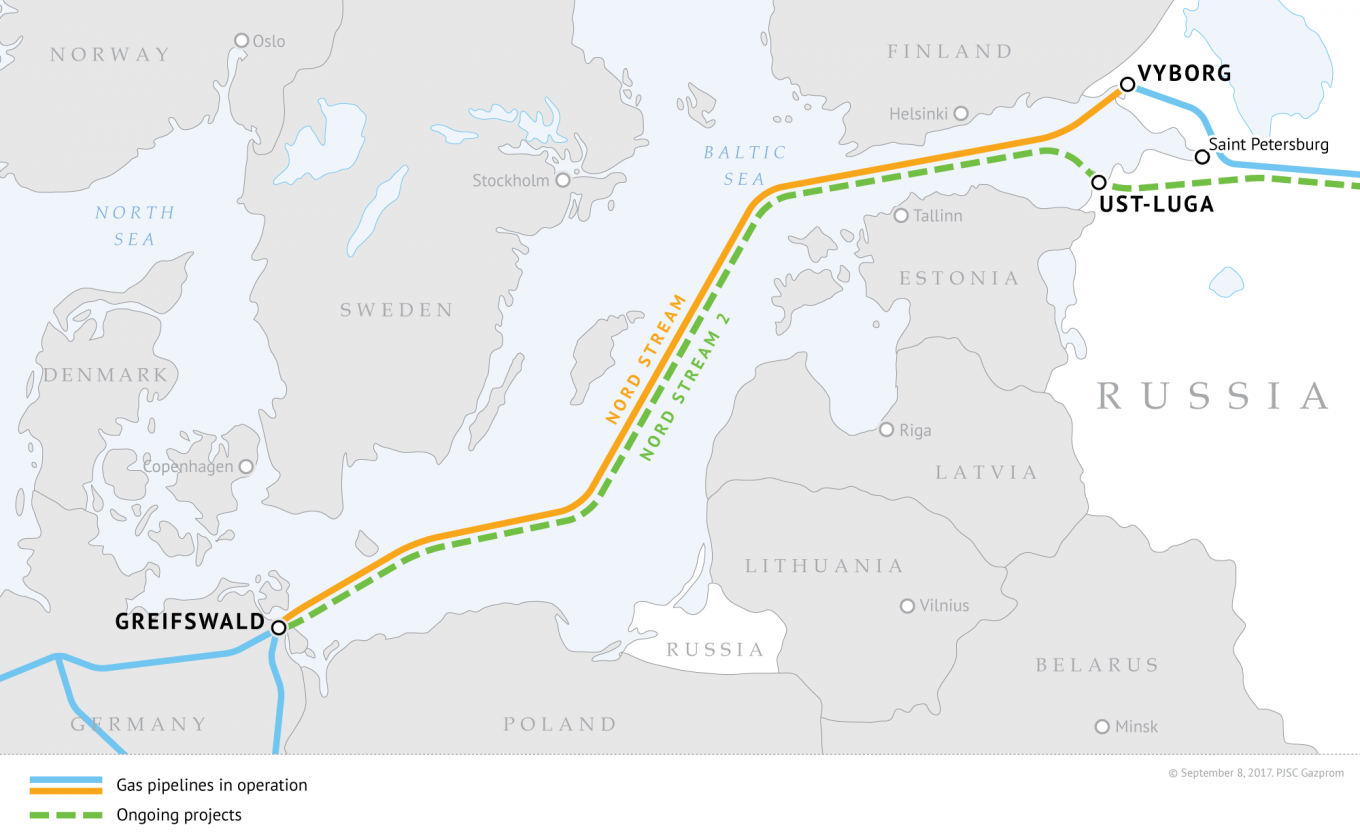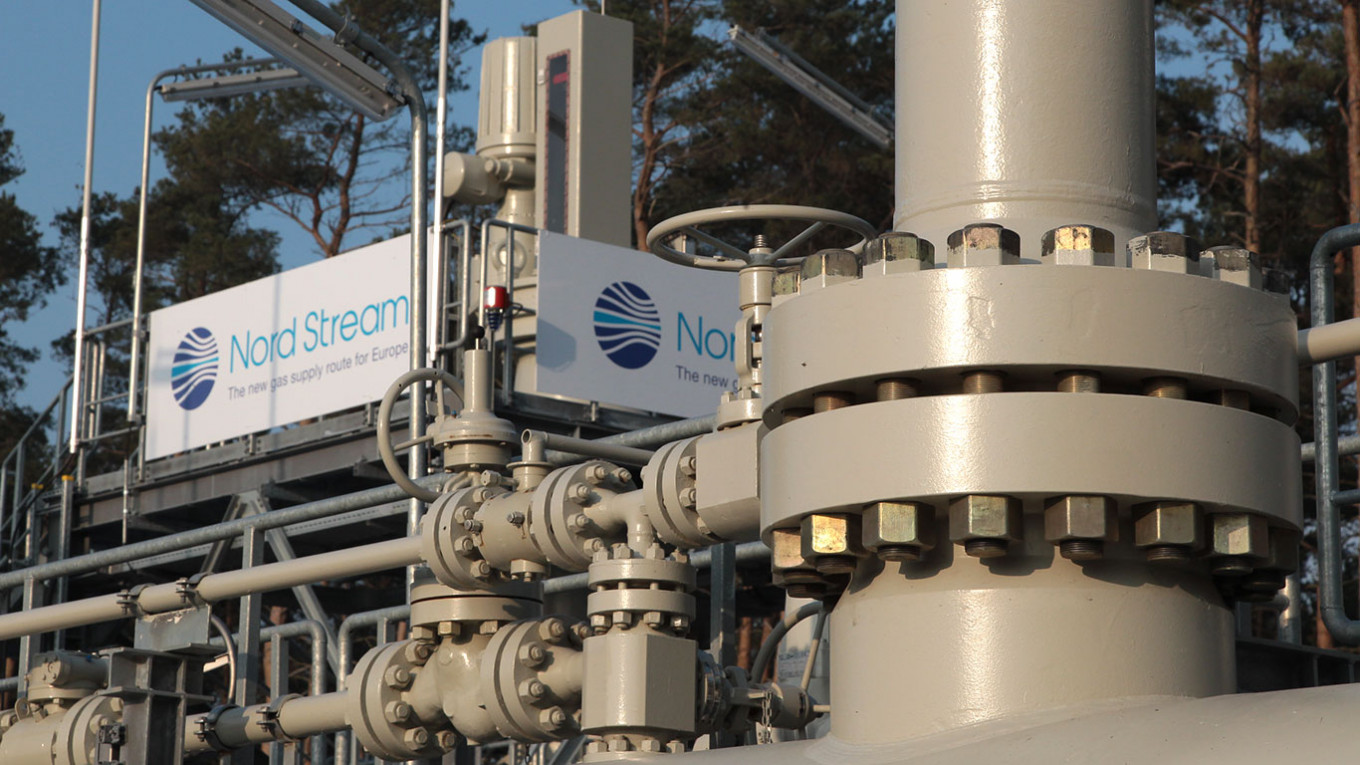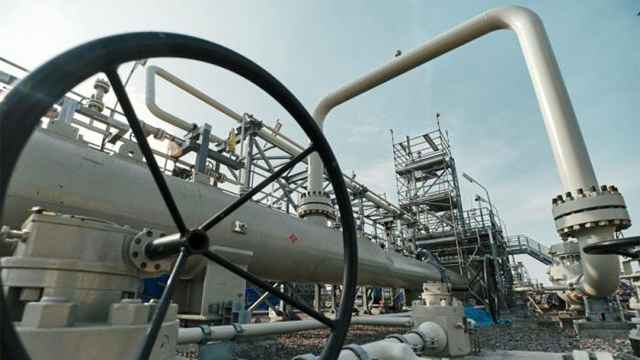The Gazprom-led business consortium constructing the controversial Nord Stream 2 pipeline has lost a crucial court case in Germany that could have excluded it from strict EU rules on the sale and transport of gas into the EU.
Nord Stream 2 AG — the Gazprom-owned, Swiss-registered company building the mega gas pipeline between Russia and Germany — was seeking an exclusion from the EU’s Gas Directive, a set of rules adopted in 2019 designed to boost competition in Europe’s gas market.
An appeals court in the German city of Dusseldorf on Wednesday rejected the company’s appeal against the measures, Bloomberg reported.
The rules require the so-called “unbundling” of the production, transport and trade of gas into the EU — meaning a single company cannot exclusively use its own pipeline to transport its own gas.
Nord Stream 2 could now be forced to allow third-party access to the pipeline and hold auctions for capacity slots. Since Gazprom holds a monopoly on gas exports from Russia, the company might be forced to cap usage at 50% of the pipeline’s capacity, with the rest reserved for an independent supplier, to ensure it is not in breach of the EU law.
The rules, which previously only applied to sales of gas inside the EU, were strengthened in 2019 to cover newly built pipelines entering EU territory from non-EU countries. Russia has argued that change was a direct attempt to hamper Nord Stream 2.
The $12-billion pipeline is wholly owned by Gazprom, with investment from five other European energy companies. Gazprom is majority owned by the Russian government.
The company has criticized the decision, calling it “discriminatory.”

“Nord Stream 2 AG maintains that the company is being unlawfully discriminated [against],” a spokesperson told The Moscow Times.
“The rejection of Nord Stream 2 AG’s application for a derogation exposes the discriminating effect of the amended EU Gas Directive,” it added.
The company had sought an exemption on the grounds that the pipeline was fully invested in and was “completed from the perspective of economic functionality” before the new rules came into force. The EU’s Gas Directive applied only to Europe’s internal energy market, whereas a 2019 amendment extended the law to cover third countries selling into the bloc as well. Nord Stream 2 argued in court that it should not be counted as a “new” pipeline and subject to the beefed-up rules.
Construction of the Nord Stream 2 pipeline is almost complete and Gazprom had previously said it plans to start shipping gas through the project by the end of the year. The pipeline has the capacity to carry 55 billion cubic meters of gas a year under the Baltic Sea from Russia to Germany and could bring Gazprom an extra $1 billion in annual profit if it could fully utilize that capacity, according to estimates from Sova Capital.
The project has been marred by controversy for years. Under former U.S. President Donald Trump, Washington launched a high-profile and aggressive campaign to thwart the pipeline’s completion, driving a wedge between the U.S. and Berlin.
Joe Biden has reversed that position and said he will not oppose the pipeline’s completion despite outcry from Ukraine, which fears it could be cut off from lucrative gas transit fees when the pipeline comes into operation, and many other European capitals.
Outgoing German Chancellor Angela Merkel has pledged Berlin will push for a lengthy extension of a gas transit contract between Kiev and Moscow and promised swift retribution against Moscow if the Kremlin tries to use the pipeline as a “geopolitical weapon.”
A Message from The Moscow Times:
Dear readers,
We are facing unprecedented challenges. Russia's Prosecutor General's Office has designated The Moscow Times as an "undesirable" organization, criminalizing our work and putting our staff at risk of prosecution. This follows our earlier unjust labeling as a "foreign agent."
These actions are direct attempts to silence independent journalism in Russia. The authorities claim our work "discredits the decisions of the Russian leadership." We see things differently: we strive to provide accurate, unbiased reporting on Russia.
We, the journalists of The Moscow Times, refuse to be silenced. But to continue our work, we need your help.
Your support, no matter how small, makes a world of difference. If you can, please support us monthly starting from just $2. It's quick to set up, and every contribution makes a significant impact.
By supporting The Moscow Times, you're defending open, independent journalism in the face of repression. Thank you for standing with us.
Remind me later.






